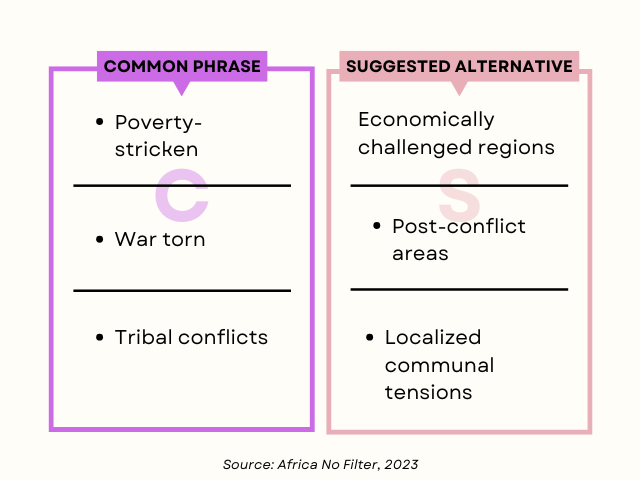Let's be honest—investigative journalism is exhausting. Hours spent sifting through mountains of data, chasing elusive leads, and dealing with sources who ghost you faster than a bad Tinder date. Enter AI: the tireless, caffeine-free assistant journalists didn't know they needed. But while most discussions revolve around AI's impact in Europe or North America, let's broaden our scope. How is AI reshaping journalism globally, especially in the Global South?
AI: Journalism’s New Best Friend or Frenemy?
In the age of ChatGPT and Midjourney, it’s tempting to brush off AI as just another overhyped tech fad—more good at churning out snappy clickbait or viral tweets than delivering real journalistic value. But let’s be honest: AI’s impact on investigative journalism isn’t some sci-fi pipe dream. It’s already here, reshaping the newsroom in ways both subtle and spectacular.
Take June 2022, for example—when AI officially crashed the editorial party. Cosmopolitan made headlines by publishing the world’s first magazine cover created using OpenAI’s DALL·E 2. Titled “Meet the World’s First Artificially Intelligent Magazine Cover,” the issue featured a striking image of a futuristic female astronaut. It only took 20 seconds (and a few hours of human prompt wrangling) to generate—proving that AI isn’t just fast, it can be stylish, too.
Hot on their heels, The Economist followed suit the very same month. For their issue titled “AI & the Future of Geopolitics,” the team used AI to generate an eerie, abstract cover image that visually interpreted global political complexity through the eyes of an algorithm (The Economist, 2022). These covers marked a turning point: AI wasn’t just being reported on—it was collaborating. Not the subject of the story, but the storyteller itself.
Beyond magazine covers, AI is rapidly transforming the day-to-day work of investigative journalists. Here's how:
Fact-checking on Steroids: Tools like Google's Fact Check Explorer, Microsoft's AI-powered Fact Checker, and beta-stage platforms such as Full Fact’s automated fact-checking tools save journalists from embarrassing corrections (and relentless Twitter trolls).
Data Analysis Magic: Machine learning algorithms from platforms like Quid, Overview, and newer players like Aleph Alpha and beta-stage tools such as Journalist Studio's Pinpoint parse mountains of data faster than you can say “I need another espresso.”
Visual Storytelling without Tears: AI-driven visualization tools like Flourish, Canva’s new AI-powered Charts, and emerging beta-stage platforms like Infogram AI transform tedious spreadsheets into stunning graphics, making your data look less like dreaded homework and more like binge-worthy Netflix content.
Additionally, platforms like Hugging Face—the American company known for democratizing machine learning, especially in the realm of natural language processing—are quickly becoming treasure troves for journalists eager to explore AI beyond ChatGPT. Think of it as a sort of open-source playground where powerful tools are constantly being released, many of which can streamline everyday investigative tasks.
Here are a few standout newcomers worth a journalist’s attention:
SmolDocling – A local and confidential information extractor that pulls key data from documents without needing an internet connection. Perfect for sensitive investigations that require offline work.
Mistral Small – A lightweight yet high-performing model for visual understanding, offering a 128k context window and an open-source Apache 2.0 license. Ideal for processing large visual datasets or surveillance imagery.
Text-to-Speech Models (Sesame csm 1B & Orpheus 3B) – These two are emerging as top contenders for natural prosody, producing voice overs and audio narratives that sound impressively human. Great for multimedia storytelling or accessibility features.
Stable Virtual Camera – A tool that animates still photographs smoothly, enabling journalists to bring static images to life in explainer videos, documentaries, or immersive features.
These tools aren’t just novelties—they’re rapidly becoming part of the modern investigative journalist’s toolkit, offering new ways to extract, visualize, and communicate complex information with precision and flair.
According to the Reuters Institute's 2023 report, artificial intelligence—particularly since the advent of ChatGPT—is becoming increasingly significant, and media managers and journalists widely expect AI to profoundly reshape journalism in the coming years.
Reinforcing this perspective, a global survey of 105 newsrooms across 46 countries revealed that over 75% of respondents use AI in at least one area across the news value chain, including news gathering, production, and distribution. This growing reliance on AI is further underscored by another study indicating that 80% of respondents anticipate increased AI usage in their newsroom in the near future. Moreover, current data reflects how deeply AI has already permeated the media sector, with approximately 90% of organizations employing AI specifically for news production processes.
From the Global North to the Global South
AI’s influence isn’t confined to newsrooms in Berlin or New York. Journalists in the Global South are uniquely positioned to benefit from AI, overcoming resource constraints that often hinder deep investigative reporting. Standing to gain the most from AI, helping them through limited resources and bureaucratic nightmares.
Latin America: Algorithms vs. Politicians (Spoiler: Algorithms win)
In Brazil, Operação Serenata de Amor is an AI initiative that analyzed public expense reports, uncovering over 8,000 suspicious reimbursements by politicians, amounting to nearly $700,000 USD. The result? Enhanced transparency and accountability in government spending, politicians scrambling and citizens smiling. Who said AI isn't fun?
Asia: Battling WhatsApp Armageddon
India's misinformation game makes the rest of us look amateur. Startups like Logically.ai deploy machine learning to debunk fake news spreading via WhatsApp faster than your aunt sends good-morning gifs. This tech has significantly reduced misinformation-induced tensions, proving AI might just save family group chats everywhere (The Hindu).
Africa: AI as the Investigative Equalizer
African investigative journalism deals with unique hurdles: resource scarcity, censorship threats, and that annoying little thing called global bias. AI is turning out to be the unexpected hero:
Nigeria’s Stears Insight uses AI analytics to break down complex economic reporting, shedding much-needed transparency.
Kenya’s Africa Uncensored uses AI-powered visualizations to expose corruption vividly enough to actually embarrass officials into action (fingers crossed!).
According to the African Centre for Media Excellence, AI could slash data-reporting time in half, potentially doubling productivity for investigative journalists on the continent (ACME, 2022).
With AI already demonstrating such transformative potential, how can journalists ensure these powerful tools help dismantle harmful narratives rather than reinforce them?
AI vs. Biases: The Africa No Filter Initiative
Here's the cold, awkward truth: AI is supposed to be this super-powered, futuristic marvel, yet it's just as flawed as the people who built it. Remember, artificial intelligence learns from humans—imperfect, bias-filled humans—so inevitably, it picks up our bad habits. "Garbage in, garbage out," as your tech-savvy friend loves to remind you at dinner parties. Enter Africa No Filter's Bias Buster tool, a refreshing piece of AI brilliance currently in beta testing. This savvy digital assistant spots clichés (think "war-torn" and "poverty-stricken") lurking in articles and kindly nudges writers toward less cringe-inducing alternatives. Think Grammarly, but instead of fixing your grammar, it's tackling your biases. Pretty neat, huh?
Here's a quick snapshot of common biased phrases flagged by the tool:
Let’s wrap it up
(Because your coffee is probably cold by now)
“The authentic human voice is key. Whether in journalism, fiction, or any form of writing, there’s an irreplaceable quality in the human voice that AI just can’t capture. In journalism especially, retaining that genuine human perspective isn’t just valuable—it’s essential,” says Nicole Scotto, an A.P. European History teacher at Bronx Science. (The science survey)
At first glance, Scotto’s statement might seem decidedly anti-AI, but listen closer—I think she’s onto something deeper. AI isn’t here to snatch the pen from journalists’ hands; it’s meant to supercharge their reach and amplify their stories, especially in regions where investigative journalism is most crucial. As these AI tools spread worldwide, they offer more than just efficiency gains—they represent a chance to reshape narratives, break barriers, and ensure journalism stays inclusive, impactful, and unmistakably human—a chance to disrupt entrenched narratives, break through media monopolies, and redefine whose voices get heard.
Nonetheless, the dazzling rise of AI inevitably stirs a few questions—albeit cynical, yet entirely justified: is AI truly democratizing journalism, or are we just swapping one gatekeeper for another—this time powered by algorithms rather than editors? Will AI empower journalists in the Global South to challenge dominant narratives, or will it quietly reinforce digital colonialism, where access to data, tools, and storytelling power remains concentrated in the hands of a privileged few? And at what point does AI stop being an assistant and start becoming the decision-maker—the unseen editor, the invisible gatekeeper, the algorithmic arbiter of truth?
Buckle up, because this AI-meets-journalism saga is only getting started.
Stay tuned, stay curious, stay sceptical, and properly caffeinated.
More Sources :
https://reutersinstitute.politics.ox.ac.uk/digital-news-report/2023
Operação Serenata de Amor (Artificial Intelligence, Data Science, Government Corruption 😱)
Using AI and facts, 23-year-old Lyric Jain is fighting fake news Logically
Fake News Is Rampant, Here Is How Artificial Intelligence Can Help
Want to dive deeper?
Journalism, media, and technology trends and predictions 2024
How AI is reshaping European newsrooms: From finding hidden stories to fighting misinformation
AI-Assisted Investigation: The Future of Journalism in the Age of AI
AI in Investigative Journalism: Enhancing Storytelling with Technology
The Intersection of Artificial Intelligence and Journalism: A New Era of Reporting






"AI isn’t here to snatch the pen from journalists’ hands". Do you think that this could be challenged? I don't expect the Journalism community to adopt it but if you are more on the investigation side (e.g: the geeks into OSINT), it is nice to be able to focus on the data and the research, and leverage AI to shape the content from your research.